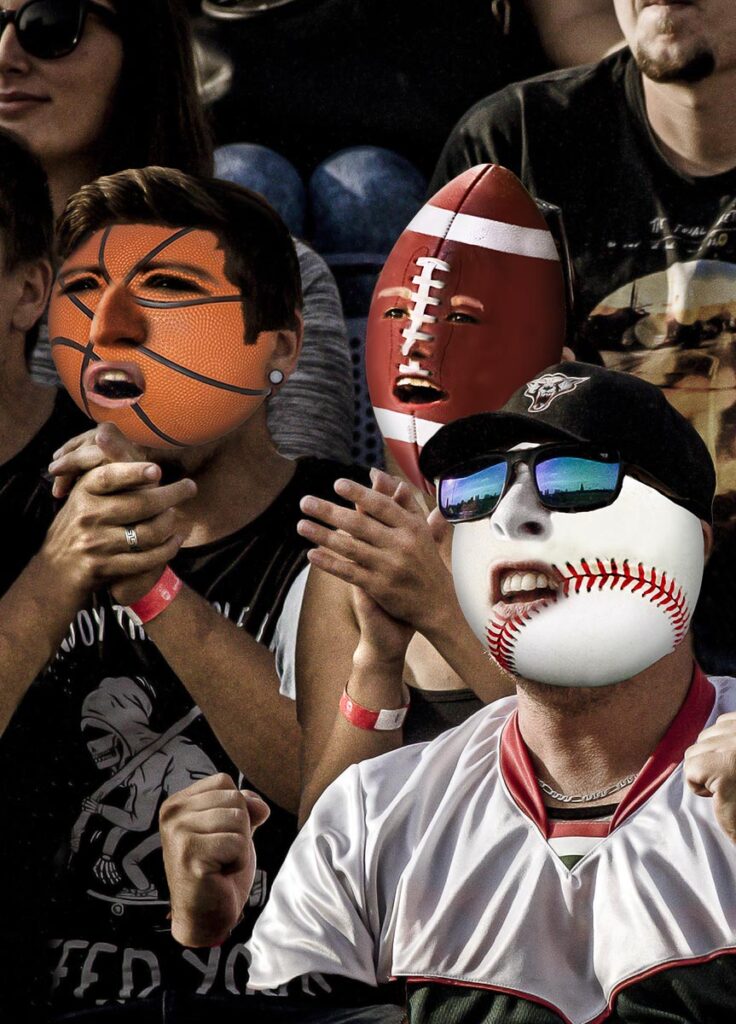Yay Team
When I was seven years old, my father took me to my first baseball game. He had no particular interest in baseball, and neither did I, but he’d been led to believe that fathers ought to take their sons to baseball games. So we took the train and the subway into Queens, to the recently erected Shea Stadium, to watch the Mets play the Phillies.
At that time, the Mets were a fairly new team and the laughingstock of the National League. I watched batter after batter strike out; I watched outfielders repeatedly fumble the ball and infielders miss it entirely. The Phillies, by contrast, were the picture of competence: They tended to hit fairly regularly, make it to base now and then, and field the ball as if they had at least played the game before.
My father seemed not to notice the difference. Whenever a Met was at bat, he would applaud encouragingly; whenever a Met managed to hit the ball or catch it, he cheered along with the crowd. Whenever a Phillie did anything similar, he sat in silence. This irritated me no end.
“Why are you cheering for the Mets,” I asked him, “when the Phillies are obviously the better team?”
“The Mets are from New York,” he explained. “They represent us — they’re our home team. So we root for them.”
My seven-year-old brain found this concept difficult to grasp. Just because the Mets were from New York, how exactly did they represent us? I couldn’t imagine why anyone would think New York was a better place if the Mets won a game, or a worse place if the Mets lost a game. Either way, New York and its residents would remain exactly the same.
Even if the Mets did somehow represent us, they were clearly a terrible team. So why did my father want this terrible team to win the game? It seemed to me that anyone who cared about baseball would want the better team to win. Otherwise, the game would have no meaning. If winning were purely a matter of dumb luck, such that even the Mets could do it, there would be no reason to feel proud of winning. You might just as well feel proud of winning a coin toss.
I’m many years older now, and I’m happy to say that I’ve figured out many of life’s puzzles, but this is one I still don’t get. I live in Oakland, and so I’m supposed to be happy when the Oakland A’s win — in fact, I’m supposed to actively want them to win — and yet I still don’t see how my identity, or my city’s worth, is at all tied to the performance of a baseball team.
I’m not saying this to be dismissive. Good friends, for whom I have great respect, have emotional investments in the outcomes of baseball, football, and basketball games, and so I certainly can’t claim that there’s anything superior about my not having such an investment. I’m just trying to understand it.
I can imagine that many years ago, in the days of wooden bleachers and hand-operated scoreboards, your home team really was your home team. You might have known some of the players, or their families; you might feel a kinship with them because they came from your neighborhood. The part of you that wanted to be an athlete might be living vicariously through their wins and losses. I could see how under those circumstances, a victory by your team might make you feel better about yourself.
But these days, professional sports is a multi-billion-dollar enterprise that draws on a worldwide pool of talent. In most cases, there is no underlying relationship between the players, the management, and your home town. The city where they play is, in every practical way, arbitrary. So how is it that people feel an emotional tie to their city’s team? When I ask friends why, they can’t offer any logical explanation; like my father, they just do.
It strikes me that this is similar to the idea of loving one’s country. As an American, I’m supposed to love America. I long wondered why this was so. I can be grateful that I had the luck to be born in this country; I can be proud of anything I’ve done to make this country a better place. But “love” seems like an odd thing to demand, considering that if I’d been born in France, I’d be expected to love France, and if I’d been born in Papua New Guinea, I’d be expected to love Papua New Guinea.
What I realized is that loving one’s country isn’t something one chooses to do; for most people it’s inborn, like loving one’s family. If I love my mother, it’s not because I think she’s better than other people’s mothers, or because she’s done something particular to make her worthy of love; it’s just because she’s my mother. There’s no actual requirement to love one’s mother, but if I met someone who claimed not to, I’d probably be wary of that person. (I’m not including here people who, as a result of childhood neglect or abuse, have a compelling reason to renounce that emotional tie.) Under normal circumstances, loving your mother is something you just do.
So I’m guessing that having an emotional attachment to a country or a team is something similarly inborn, something that grew out of loyalty to a clan or tribe. If I lack that sort of attachment, I can’t just choose to have it, but I’ll understand if that makes you trust me a little less.
